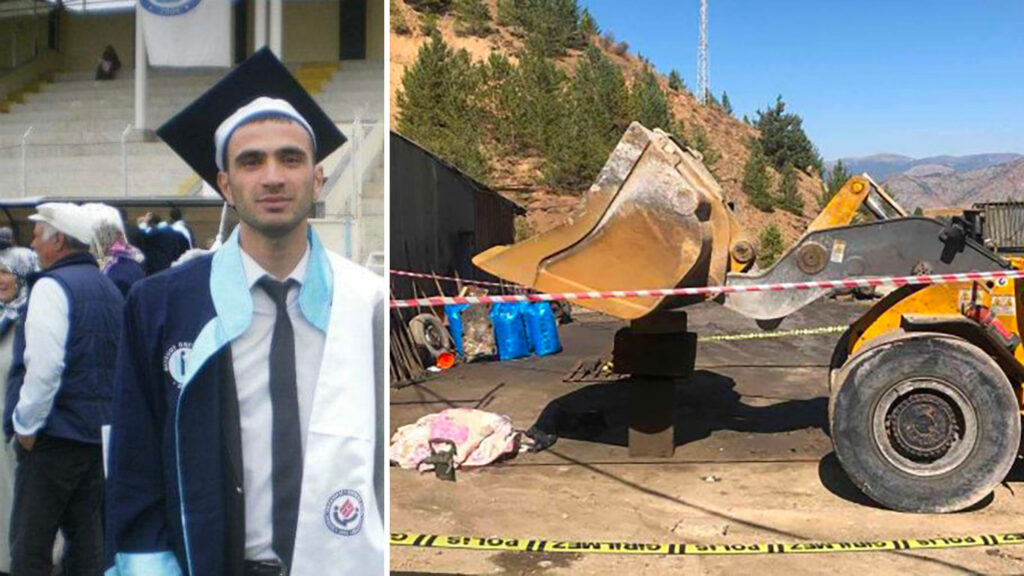Kani Enön, a former police officer who was fired by an emergency decree as part of Turkey’s post-coup purge of state institutions, died last week while working at a quarry in Turkey’s northeastern province of Gümüşhane, the Kronos news website reported on Wednesday.
Following the failed coup, the Turkish government declared a state of emergency and carried out a massive purge of state institutions under the pretext of an anti-coup fight.
More than 130,000 public servants, including 4,156 judges and prosecutors, as well as 29,444 members of the armed forces were summarily removed from their jobs for alleged membership in or relationships with “terrorist organizations” by emergency decree-laws subject to neither judicial nor parliamentary scrutiny.
According to Turkish media reports, Enön, 32, died on Sept. 20 when part of construction equipment he was repairing fell on him at a quarry belonging to Karatoprak Mining in Gümüşhane.
Enön’s lawyer, Mesut Can Tarım, on Wednesday commented on the incident in a series of tweets, saying that Interior Minister Süleyman Soylu and Turkey’s Security Directorate General, which is affiliated with the ministry, failed to reinstate Enön to his police job although an administrative court ordered them to do so.
Emniyet Personeli Müvekkilim Kani Enön Ceza Yargılamasında beraat etmiş Ancak; 375 Sayılı KHK ile iltisak/irtibat gerekçeleri ihraç edilmişti. İdare Mahkemesi kendisi hakkında göreve iade kararı vermesine rağmen Süleyman Soylu ve bağlı teşkilatı göreve başlatmadı. Ailesinin + https://t.co/WwZGsySh7q
— Av. Mesut Can TARIM (@mcthukuk) September 28, 2022
“He died while working at a quarry to provide for his family. His little baby is left without a father,” Tarım said, accusing Soylu and others who unlawfully refused to implement the court decision to reinstate Enön of responsibility for his death.
“They openly don’t implement court orders and get no punishment for it. The [institution of the] state has never been so trampled on,” the lawyer added.
Turkey’s former public servants were not only fired from their jobs after the attempted coup in 2016; they were also prohibited from working again in the public sector and getting a passport. The government also made it difficult for them to work formally in the private sector. Notes were put on the social security database about dismissed public servants to deter potential employers.
According to a joint report by the Justice for Victims Platform and Ömer Faruk Gergerlioğlu, an MP from the pro-Kurdish Peoples’ Democratic Party (HDP) and a prominent defender of human rights, the two-year-long state of emergency declared after the failed putsch caused immense suffering among public servants who were dismissed from their jobs by the government as well as their families.
The biggest problem they have been facing is economic hardship (97.9 percent) followed by psychological problems (88.6 percent), loss of social prestige and social exclusion (83.7 percent), the disintegration of social circles (83.1 percent), unemployment/lack of employment (80.4 percent) and lack of social security (73.2 percent).


